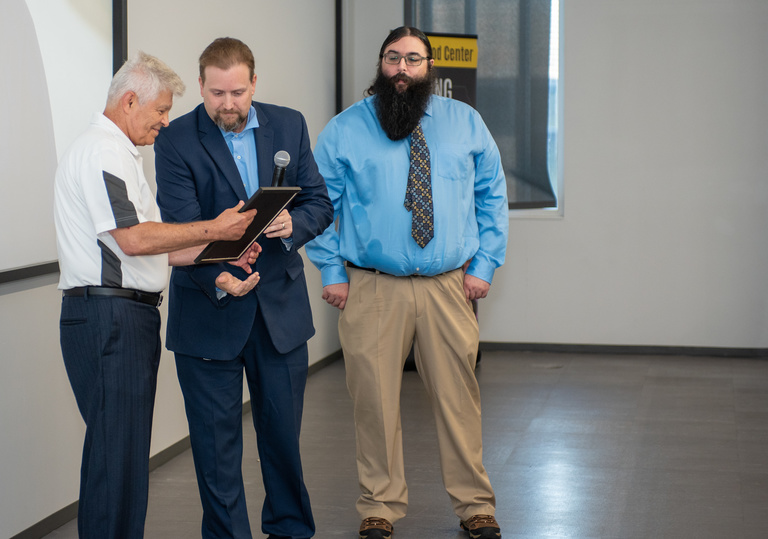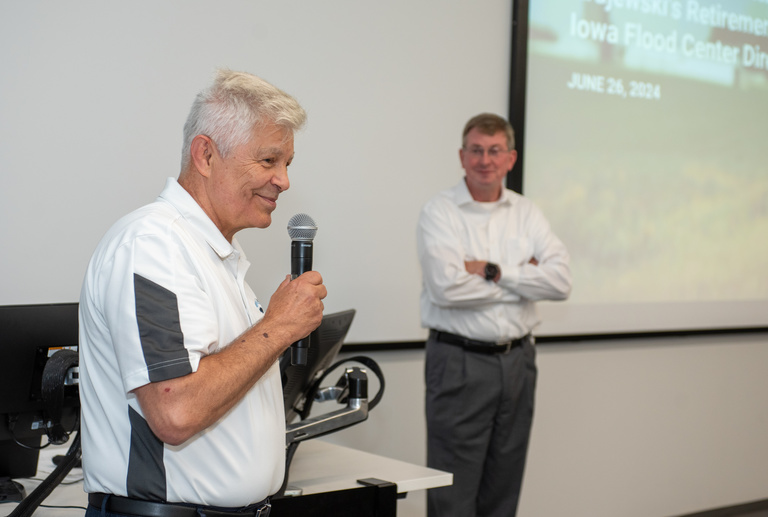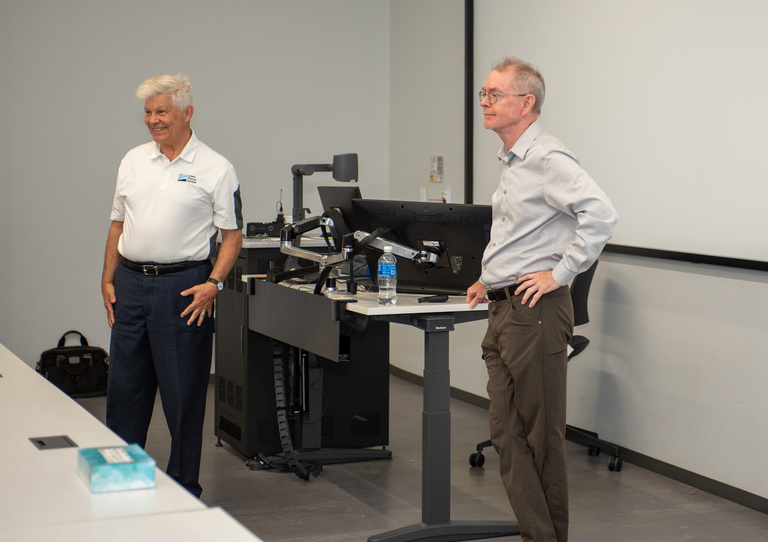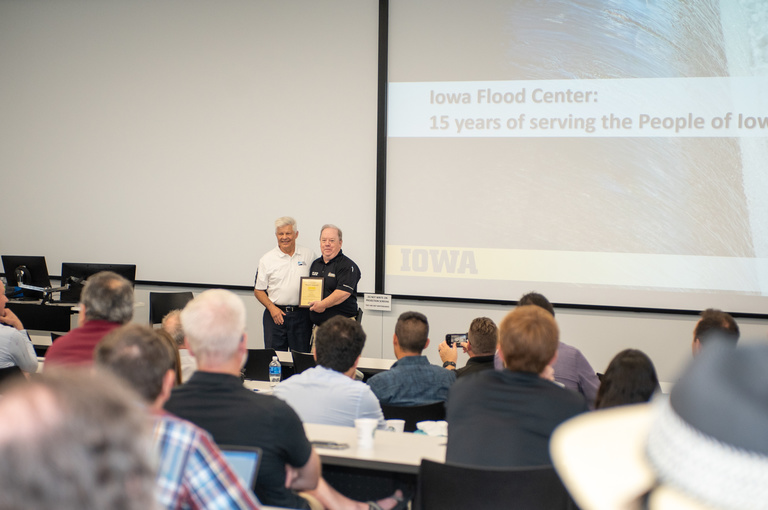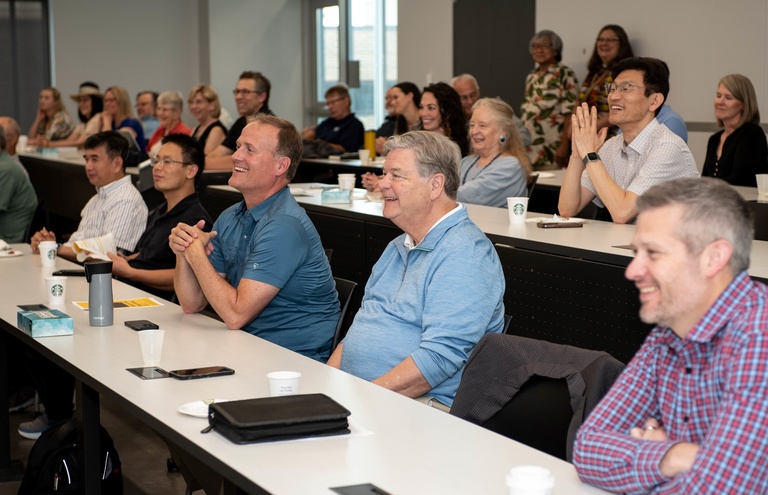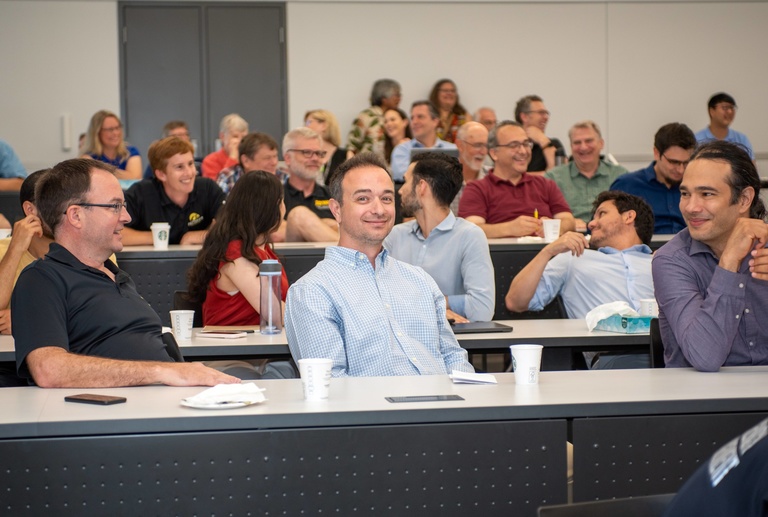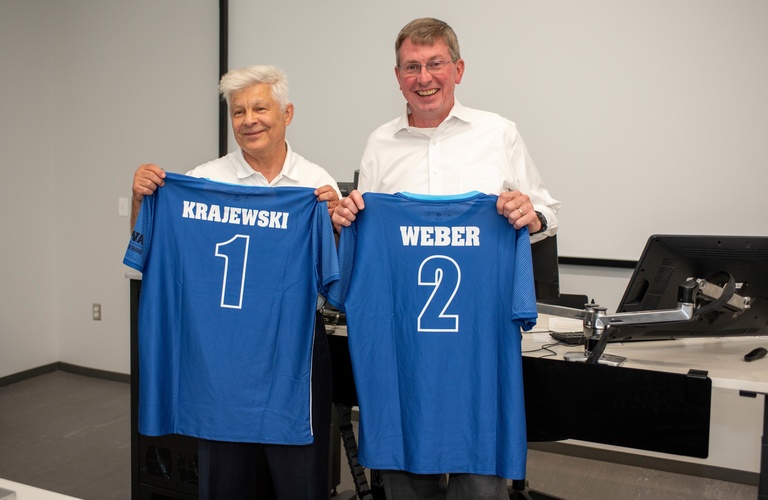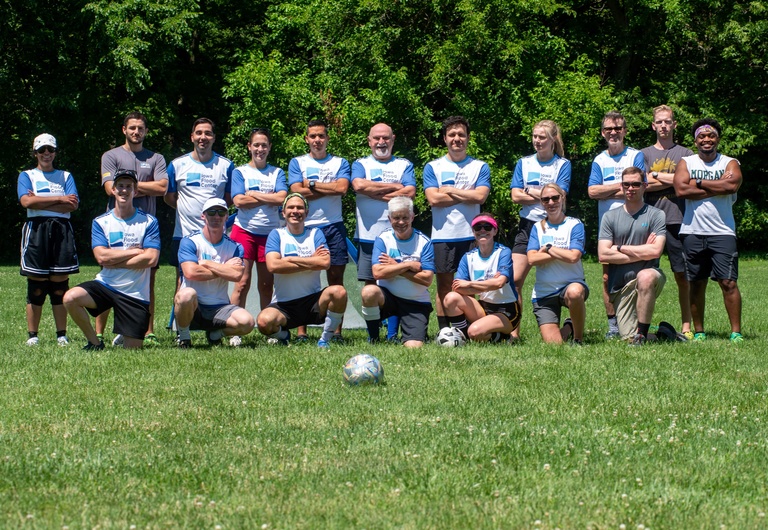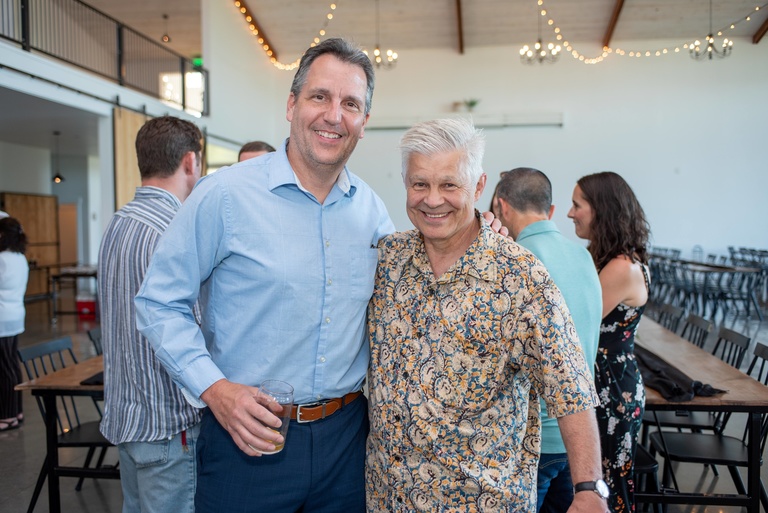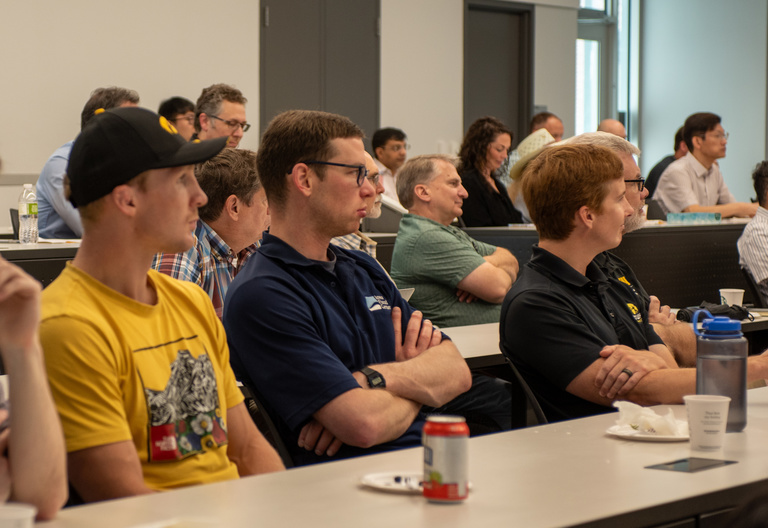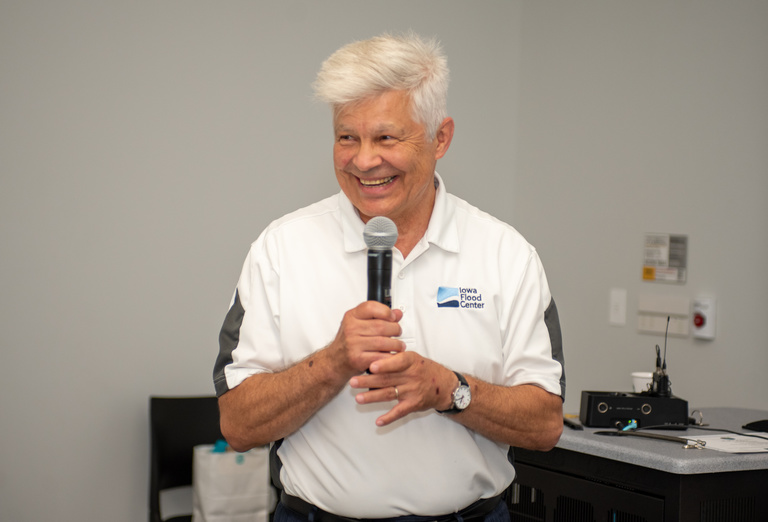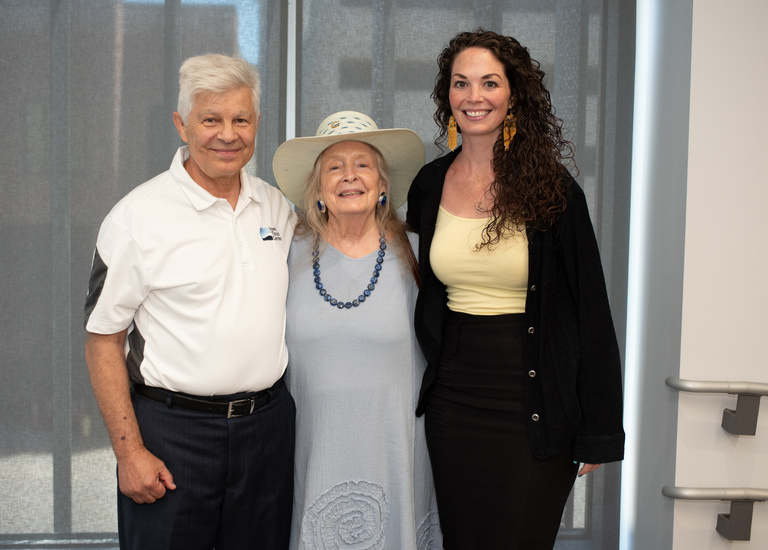June 30, 2024, marked Witold Krajewski's last day serving as the director of the Iowa Flood Center. Current and former students, staff, faculty colleagues, partners, and friends gathered to celebrate and honor his contributions toward improving Iowa's flood resilience and advancing water resources engineering.
Born and raised in Poland, Krajewski came to the United States as a young man with just two suitcases and $400 in his pocket. He equates the experience of coming to the U.S. like "going to the moon." He began his career as a postdoctoral research scholar at Utah State University before joining another postdoc position with the National Weather Service in Maryland, eventually leading to a federal appointment. The position allowed him to explore his interests in hydrology and is where he discovered a passion for radar remote sensing of rainfall. However, he yearned for the freedom of academia and joined the University of Iowa College of Engineering and IIHR—Hydroscience and Engineering (IIHR) in 1987. Though his research interests focused on rainfall, his motivation was always flooding and flood prediction.
When the 2008 floods happened that devastated Eastern Iowa, Krajewski remembers feeling helpless and frustrated. "Even though I was doing relevant research on rainfall, we couldn't help much," he says. When conversations began about establishing an Iowa Flood Center (IFC), he was ready to put his expertise to use. "I can say I was ready—really ready," he says.
Alongside his colleague IIHR Director Larry Weber, they worked with the Iowa legislature to establish the Iowa Flood Center to help Iowans better understand and reduce their flood risks. Over the past 15 years, Krajewski has led and nurtured the IFC from infancy into its teenage years, serving Iowans with advanced and reliable flood information, including:
- Creating the Iowa Flood Information System (IFIS) that communicates real-time information about stream levels, flood alerts and forecasts, and weather conditions for the entire state
- Deploying more than 260 IFC-designed, -built, and -deployed stream sensors that collect river levels every 15 minutes and share data on IFIS
- Providing flood alerts and forecasts for more than 1,000 Iowa communities, helping Iowans better plan and prepare in advance of a flood
- Developing high-resolution flood inundation maps to show the extent of possible flooding for every Iowa stream draining more than one square mile
- Building the Missouri River Flood Information System to provide communities in Southwest Iowa with comprehensive information on floods, streamflow and mitigation scenarios, and levee systems that can be easily modified to represent breaches
- Deploying more than 50 hydrologic weather stations in Iowa to improve flood and drought monitoring and forecasting
- Bringing $97 million to the state of Iowa for the Iowa Watershed Approach program, investing $40 million in conservation to construct more than 700 flood mitigation projects across Iowa's landscape
- Building a robust education and outreach program to reach emergency responders, agencies, community members, farmers, K-12 students, academia, and the public with flood information at nearly 80 events annually
- Serving as a model for other states looking to replicate IFC's success, including Missouri, Texas, North Carolina, Nebraska, South Dakota, and Louisiana
- Providing expertise to help build a more water- and weather-ready nation through the $360 million NOAA Cooperative Institute for Research to Operations in Hydrology based at the University of Alabama
"We did something special...It was my vision, but also the ability to bring people together to contribute their skills and energy," Krajewski says. "I'm happy about that because I know it was special. It still is special."
Larry Weber will serve as interim director of the Iowa Flood Center as the University of Iowa, College of Engineering, and IIHR work together to fill the leadership position permanently.
"It's been an honor to work alongside Witek to watch the flood center grow and thrive—it's exceeded our vision and expectations in every way," says Weber. "I am happy to serve in this role to continue Witek's legacy. We've accomplished a lot together, but there's much more work to do."
Krajewski also serves as a professor of civil and environmental engineering, the Rose and Joseph Summers Chair in Water Resources Engineering, and a research engineer at IIHR. He has mentored more than 50 master's and PhD students. In 2021, he was elected to the National Academy of Engineering and named a fellow of the American Association for the Advancement of Science. Though he has officially retired as IFC director, he looks forward to staying engaged with the center's activities as a researcher.

